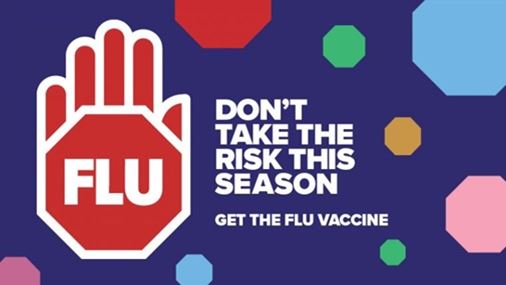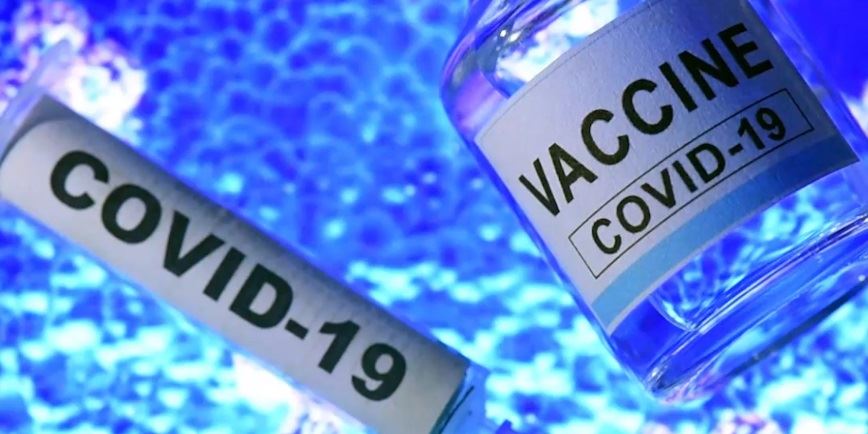Flu and Covid Vaccinations

Seasonal Flu Vaccination
Flu (also known as influenza) is a highly infectious illness caused by the flu virus. It spreads rapidly through small droplets coughed or sneezed into the air by an infected person. For most people, flu is unpleasant but not serious. You will usually recover within a week.
Studies have shown that flu vaccines provide effective protection against the flu, although protection may not be complete and may vary between people. Protection from the vaccine gradually decreases and flu strains change over time. Therefore, new vaccines are made each year and people at risk of flu are encouraged to be vaccinated every year.
The flu vaccination is offered to people in at-risk groups. These people are at greater risk of developing serious complications if they catch flu, such as pregnant women and elderly people.
Should I get the Flu Vaccination?
Eligibility
Eligibility for flu vaccination is based on the advice and recommendations of the Joint Committee on Vaccination and Immunisation (JCVI). This includes a vaccination programme for children based on JCVI’s 2012 recommendation, using live attenuated influenza vaccine (LAIV) which provides individual protection to the child and reduces transmission in the wider population.
The following groups are to be offered flu vaccination in line with the announced and authorised cohorts (see timings section):
From 1 September 2024:
- pregnant women
- all children aged 2 or 3 years on 31 August 2024
- primary school aged children (from Reception to Year 6)
- secondary school aged children (from Year 7 to Year 11)
- all children in clinical risk groups aged from 6 months to less than 18 years
From October 2024, exact start date to be confirmed by NHS England in due course:
- those aged 65 years and over
- those aged 18 years to under 65 years in clinical risk groups (as defined by the Green Book, Influenza Chapter 19)
- those in long-stay residential care homes
- carers in receipt of carer’s allowance, or those who are the main carer of an elderly or disabled person
- close contacts of immunocompromised individuals
- frontline workers in a social care setting without an employer led occupational health scheme including those working for a registered residential care or nursing home, registered domiciliary care providers, voluntary managed hospice providers and those that are employed by those who receive direct payments (personal budgets) or Personal Health budgets, such as Personal Assistants

Eligible groups for autumn Covid 2025
The Joint Committee on Vaccination and Immunisation (JCVI) has updated its advice for the autumn 2025 COVID-19 vaccination programme, which has been accepted by ministers. The focus of the programme is shifting towards targeted vaccination of those at highest risk of serious disease.
For autumn 2025, COVID-19 vaccination will be offered to:
- adults aged 75 years and over
- residents in care homes for older adults
- individuals who are immunosuppressed aged 6 months and over
This represents a change from the autumn 2024 programme, which also included adults aged 65 to 74 and all those aged 6 months and over in a clinical risk group.
The eligibility is the same across the 4 nations of the UK (England, Scotland, Wales and Northern Ireland).
The vaccine should usually be offered no earlier than around 6 months after the last vaccine dose. If you are eligible, you can get protection from an autumn COVID-19 vaccination even if you have not taken up a COVID-19 vaccine offer in the past.
Eligibility for the immunosuppressed
We understand that having a weakened immune system (immunosuppression) is a lot less straight forward than the other criteria. Looking online can cause even more confusion, as people might see themselves (and be considered by others) as immunosuppressed but might not fit the immunosuppression criteria for vaccination.
So, what are the immunosuppression criteria? Eligibility is outlined in Chapter 14a of the Green Book, a document published by UKHSA specifically for public health professionals. It can be a complicated document for non-experts, so we've listed some of the groups here:
- Organ, bone marrow or stem cell transplant patients
- Those being treated with systemic steroids for more than a month
- Those living with HIV
- Those receiving immunosuppressive or immunomodulating biological therapy, including children who are about to receive therapy
- Those undergoing chemotherapy or radiotherapy
- Those requiring long-term treatment for immunosuppression
- Those with a history of haematological malignancy including chronic leukaemia, lymphomas, and leukaemia
- Those with genetic disorders affecting the immune system
While this list summarises some major groups, it does not cover everything. Please check online at nhs.uk/get-vaccine to see if you are eligible.
How to access the COVID-19 autumn vaccination
COVID-19 spreads more easily in winter because we spend more time indoors with others.
NHS England will confirm details on how and when eligible people can access the autumn vaccine in due course.
If you are eligible, having your COVID-19 vaccination this autumn will give you protection from serious COVID illness over winter.
Page created: 31 October 2019